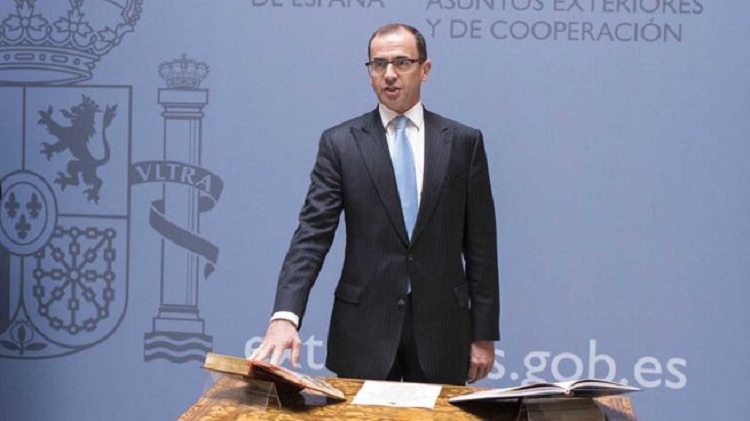The Diplomat
The United States government, headed by Joe Biden, has defended before the Moroccan Minister of Foreign Affairs, Nasser Bourita, a “credible UN-led political process” to the Western Sahara conflict, thus qualifying the decision of the previous American president, Donald Trump, to recognize Moroccan sovereignty over the territory, a decision that contributed to the current diplomatic crisis between Rabat and Madrid.
This was conveyed this past Wednesday by the U.S. Deputy Assistant Secretary of State for the Middle East, Joey Hood, during a meeting in Rabat with Bourita. “On Western Sahara, we support a credible UN-led political process to stabilize the situation and secure a cessation of any hostilities”, the State Department stated in a press release from the U.S. Embassy in Morocco.
“We are consulting with the parties about how best to bring a halt to the violence and ultimately achieve a lasting settlement”, it continued. “We strongly support UN efforts to appoint a Personal Envoy of the Secretary-General for Western Sahara as quickly as possible. We are prepared to be actively engaged with all sides in support of that individual”, he added,
Last December 10, Trump publicly announced his decision to recognize Moroccan sovereignty over Western Sahara in order to attract Rabat to his policy of diplomatic rapprochement between Arab countries and Israel. The then Minister of Foreign Affairs, Arancha González Laya, limited herself to declaring that the solution to the Western Sahara problem “does not depend on the will or unilateral action of a country, however big that country may be”.
Trump’s announcement came a few months before the outbreak of the diplomatic crisis between Madrid and Morocco because of the irregular entry into Spain of the Polisario Front leader, Brahim Ghali, which resulted in a massive and uncontrolled entry of immigrants in Ceuta with the complicity of Rabat, as well as in a call for consultations of the Moroccan ambassador in Madrid and a whole series of public accusations against Spain. However, Bourita himself warned at the end of May in a communiqué that the Moroccan discomfort with Spain is not due to “the affair of one man” (in reference to Ghali), but to the fact that Spain has not adopted a position of open support for Rabat’s pretensions in the Sahara, as the United States had done.
Spain has reiterated in recent months its support for a solution agreed between the parties within the framework of the United Nations, a position which has been expressly rejected by Bourita and which has just been defended by the State Department of the current Administration of Joe Biden. Last October, the UN Security Council urged the parties to “resume negotiations under the auspices of the Secretary-General, without preconditions and in good faith”, with a view to “reaching a just, lasting and mutually acceptable political solution” that allows for “the self-determination of the people of Western Sahara in the context of arrangements consistent with the principles and purposes of the Charter of the United Nations”. The UN has been monitoring the cease-fire between Morocco and the Polisario Front since 1991 through a military mission, MINURSO.







